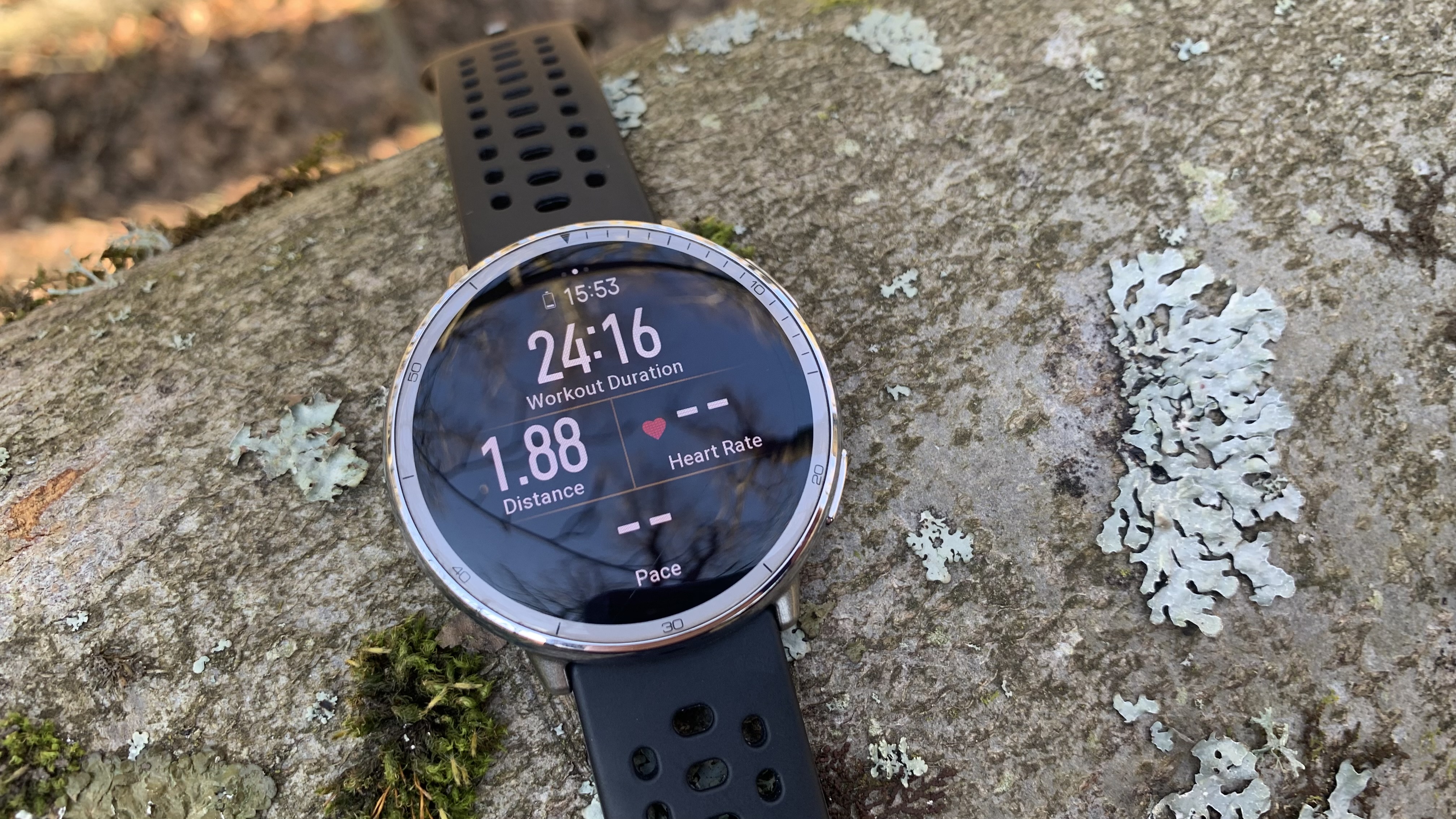How to stay clean while camping: 8 hygiene hacks
Our tips for how to stay clean while camping provide simple solutions from bringing the right clothing to scrubbing up at the end of the day so that you feel nearly new

Grit and grime are all part of having a good time when you’re camping, and while no one expects to come home smelling fresh as a daisy, there are some good reasons to tend to your personal hygiene at camp. If you’re camping in hot weather or for a long time, it’s not just about bad body odor getting you down – poor hygiene can lead to unwanted rashes, itching and foot fungus that can turn your trip into a real downer. Our eight tips for how to stay clean while camping provide some simple solutions from bringing enough clothing to getting scrubbed up at the end of each day so that you feel and smell nearly new. Make sure to also read our articles on how to poop in the woods and how to go camping on your period for more hygiene hacks.
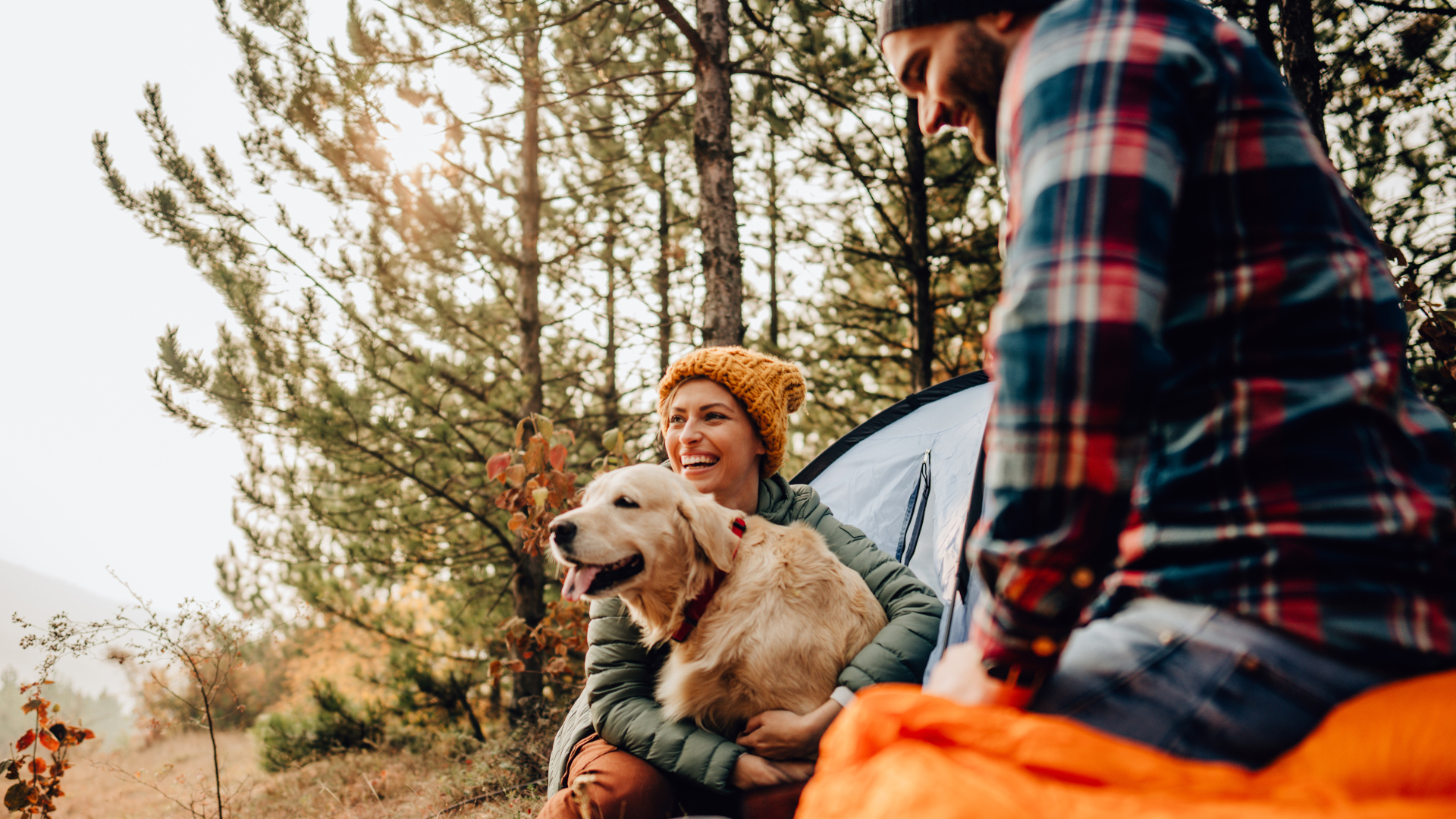
1. Wear clothing made using natural fibers
Body odor might be part and parcel of not taking a shower for a few days, but you can definitely curtail it by wearing the right fabrics. Synthetic clothing is known to trap bacteria so it gets really smelly, fast if you’re having sweaty fun. Ditch the synthetics and look for base layers, underwear and the best hiking socks made from merino wool, which takes a long time to get stinky.
2. Pack extra socks and underwear
Especially if you're backpacking, there’s a limit to how many outfit changes you can bring, but you should definitely include extra socks and underwear since these absorb the most sweat. You may not be able to bring a fresh pair for every day if it’s a long trip, but do aim to change them up every few days. When you get back from a day of hiking, take your socks off and let them air out.
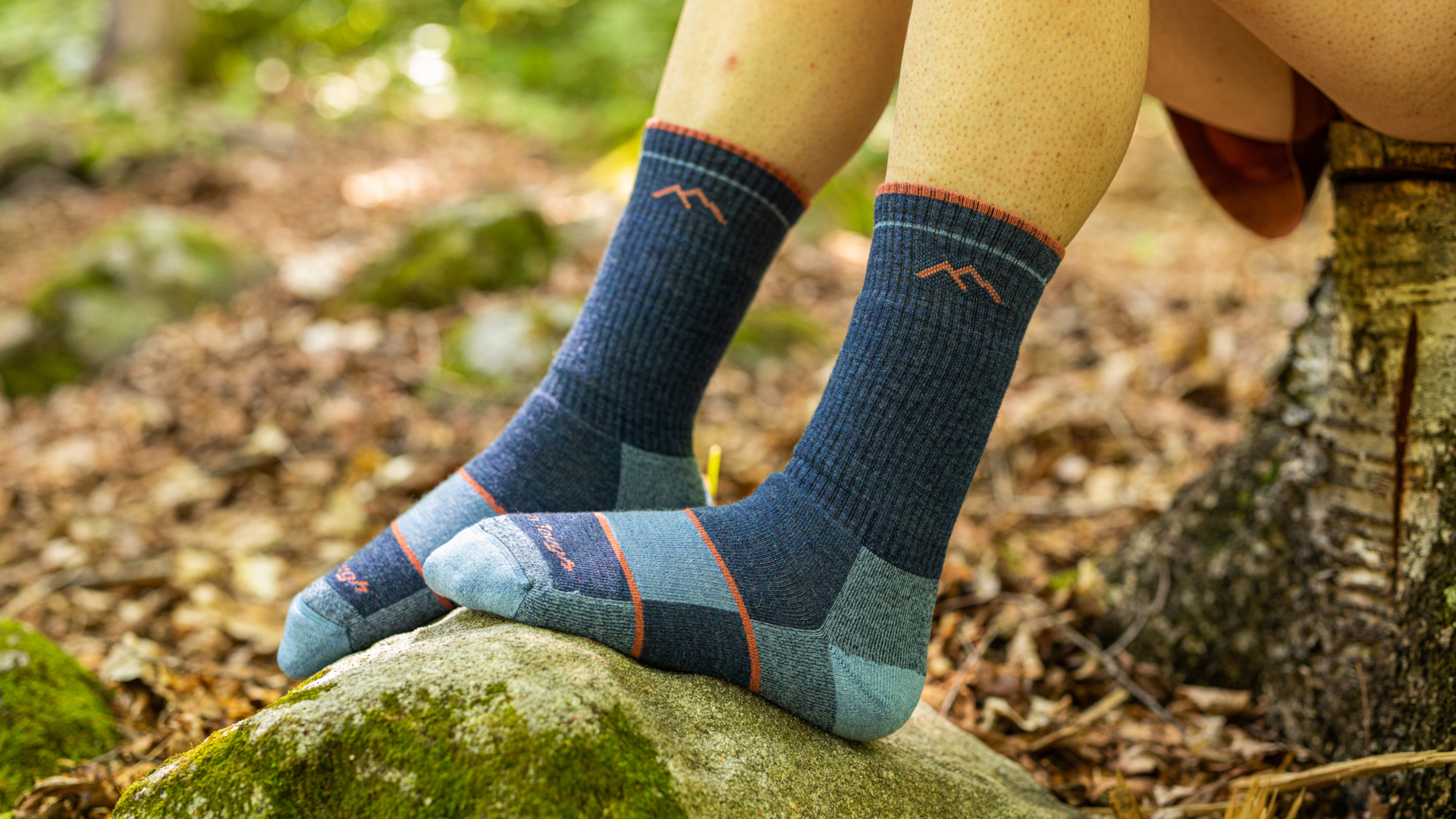
3. Bring an extra outfit
It’s a good idea to bring two outfits on any camping trip. If it’s a long trip, wear one outfit for the first half then change when you can’t stand the smell of yourself anymore. If it’s a shorter trip, designate one outfit for getting sweaty in during the day then change into your fresh clothes for relaxing in the evening and hang your daytime clothes out overnight to freshen up. This way you’ll have a reasonably fresh set of clothes for your journey home or if you need it for the last few days.
4. Have sleepwear
You may well choose to sleep naked at camp (and if you’re planning on getting grimey, you’ll want to use a sleeping bag liner to protect your bag) but if it’s going to be cold overnight, you’ll want to wear pajamas or long johns and a base layer. If you don’t bring clothes designated for sleep, that’s just more time spent marinating in the same old stinky clothes, so pack sleeping clothes too.
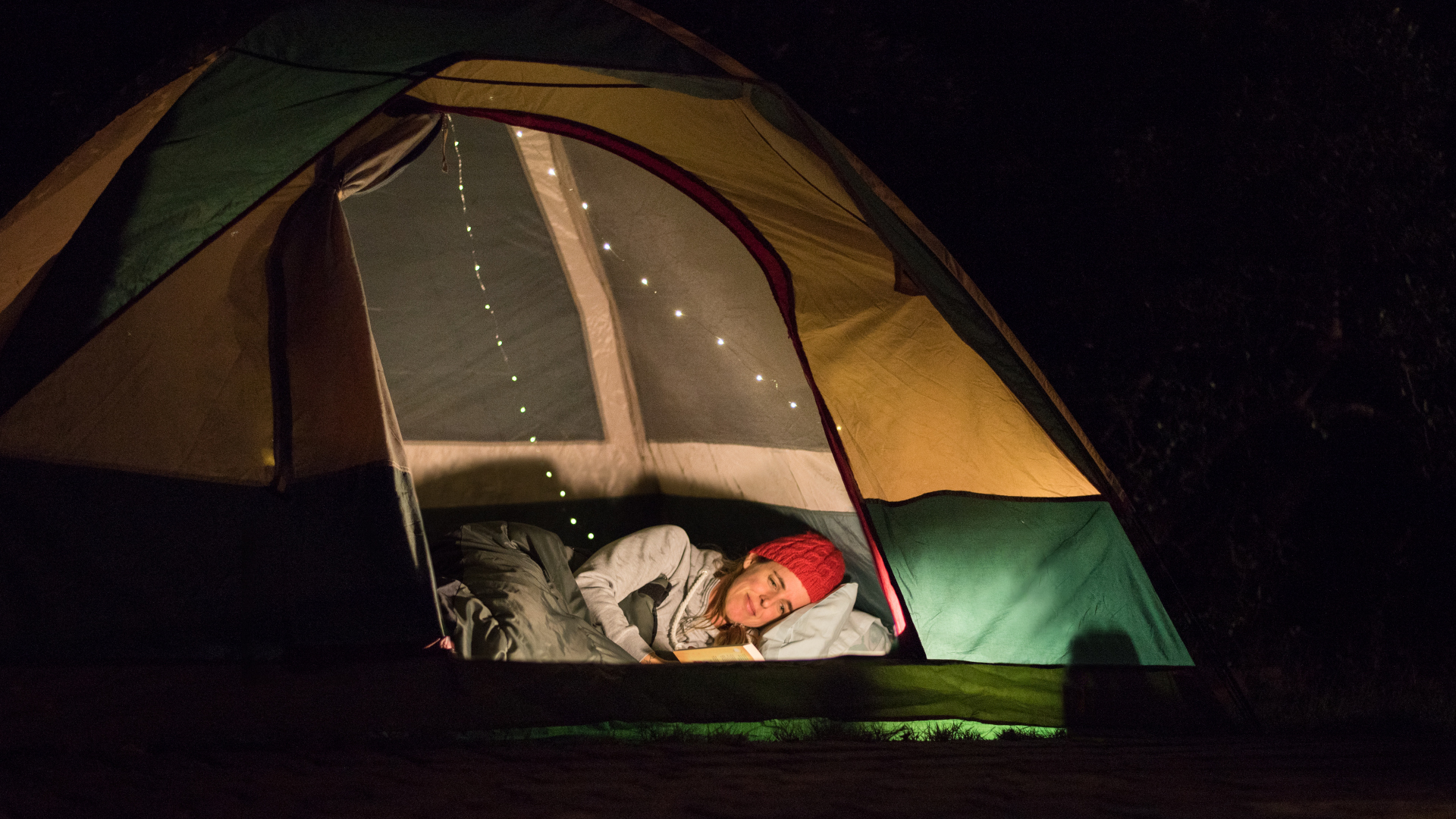
5. Use baby wipes and hand sanitizer
Honestly, a great way to freshen up is to bring baby wipes and hand sanitizer. You may not have access to running water, but you can still give yourself a wipe down at the end of each day and use hand sanitizer on your armpits as well as your hands to take care of the odor-causing bacteria rather than just using deodorant to mask the smell.
6. Use dry shampoo
Sweaty scalps do give hair a unique pong and you might be prone to greasy hair that can make you feel dirtier than you really are. Dry shampoo to the rescue! Bring a travel-sized bottle and spray it into the roots of your hair, then brush it out to reduce the grease and add a nice fragrance to your hair – this will keep your camping pillow smelling better too.
Advnture Newsletter
All the latest inspiration, tips and guides to help you plan your next Advnture!
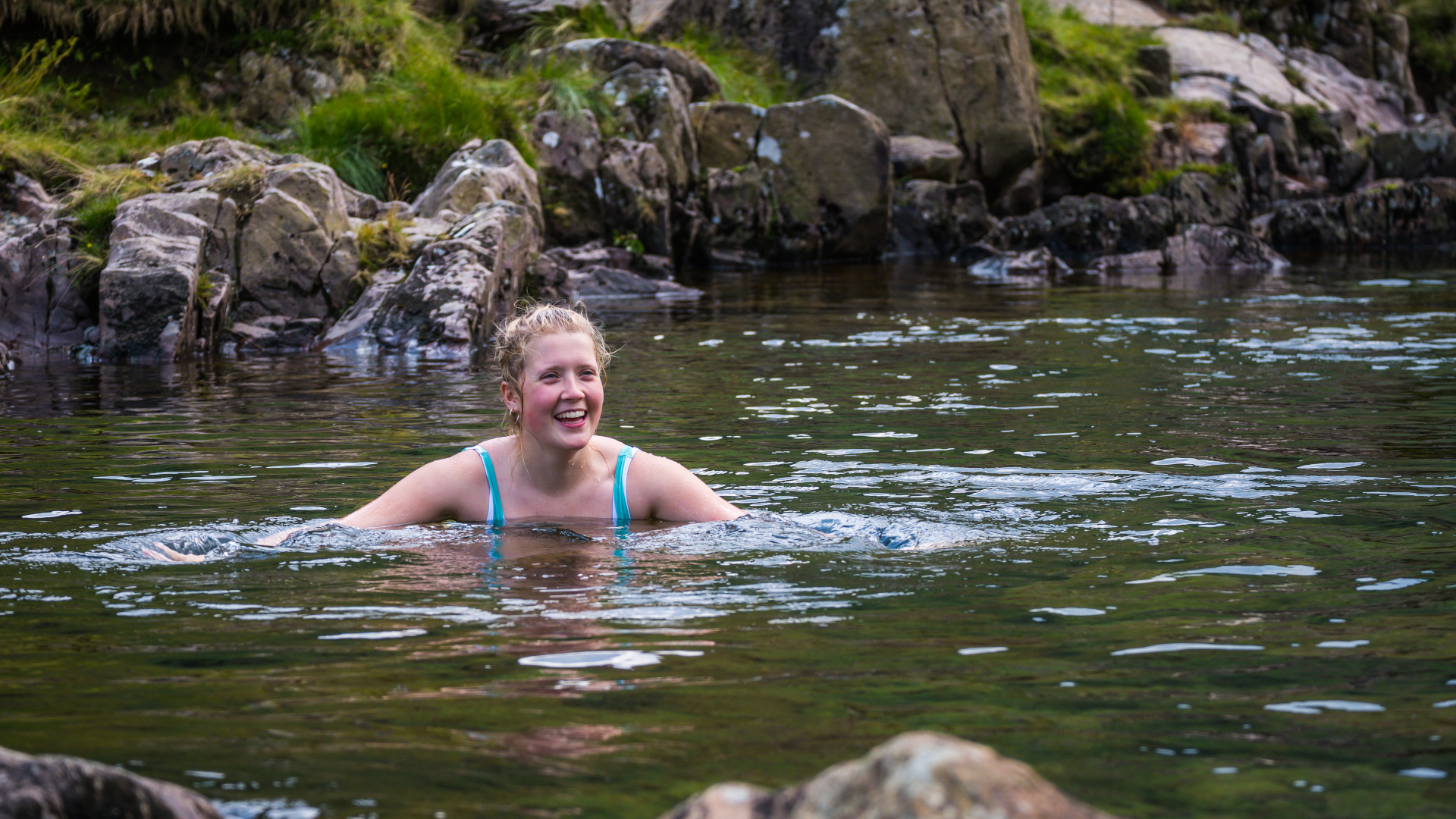
7. Take a dip
If you’re camping near a lake or river that’s safe for wild swimming, the easiest and cheapest option is to take a dip in the evening. If the water is cold, you can take a quick dunk or even just wash your feet – but please leave the soap at home to protect the fish and keep the rivers clean.
8. Take a camping shower
It might sound contradictory to roughing it, but you really can take a shower while camping. Check out our article on how to shower while camping for six quick, refreshing solutions plus what you'll need to bring.
Julia Clarke is a staff writer for Advnture.com and the author of the book Restorative Yoga for Beginners. She loves to explore mountains on foot, bike, skis and belay and then recover on the the yoga mat. Julia graduated with a degree in journalism in 2004 and spent eight years working as a radio presenter in Kansas City, Vermont, Boston and New York City before discovering the joys of the Rocky Mountains. She then detoured west to Colorado and enjoyed 11 years teaching yoga in Vail before returning to her hometown of Glasgow, Scotland in 2020 to focus on family and writing.

